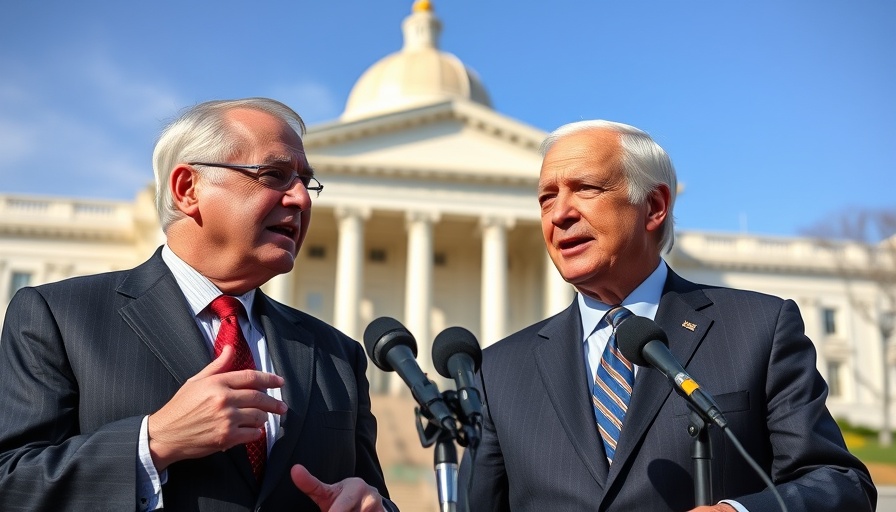
Understanding the Divide: Democrats and Tariffs
As the shadows cast by Donald Trump’s trade war linger, Democrats find themselves caught between a rock and a hard place. While they express dissatisfaction with the chaos and unpredictability of Trump’s tariff policies, there’s a growing realization that, politically and economically, a zero-tariff landscape doesn’t align with their views. Senators like Tim Kaine and Elizabeth Warren have made clear that tariffs, in some capacity, will remain a part of any viable economic strategy.
Democratic Tariff Perspective: A Nuanced Stance
This perspective reflects a broader economic understanding within the Democratic Party. The acknowledgment that some form of tariffs may be necessary aligns with the concerns many business professionals have regarding international competition and local market protection. For instance, tariffs can serve as a tool for negotiating better trade agreements and ensuring that domestic businesses, including startups and tech firms, can compete fairly. This complexity underscores the importance of having a well-rounded debate about economic strategies moving forward.
The Business Community's Role in Shaping Tariff Policies
For business professionals, the implications of such discussions are crucial. A tariff-less economy might sound appealing, but insights from the tech industry reveal the potential pitfalls. Companies that depend on international supply chains may face challenges without protective measures. Moreover, local business success stories highlight how tariffs can afford necessary shelter in competitive markets while fostering innovation. This duality is not lost on Democrats as they navigate their party's policies.
Future Economic Trends: Balancing Act Ahead
Looking ahead, economists predict that a balanced approach to tariffs could stabilize the market, feeding into economic forecasts that suggest caution rather than aggressive dismantling of protective measures. For business leaders, understanding this balance is key. It allows them to strategize around potential regulatory shifts, innovate with corporate responsibility in mind, and harness sustainable practices without over-reliance on foreign production.
In conclusion, for entrepreneurs and those following the evolving landscape of Bay Area business news, it’s essential to keep an eye on how these tariff discussions unfold. They will shape the conditions under which startups operate and how established businesses adapt.
 Add Row
Add Row  Add
Add 



Write A Comment